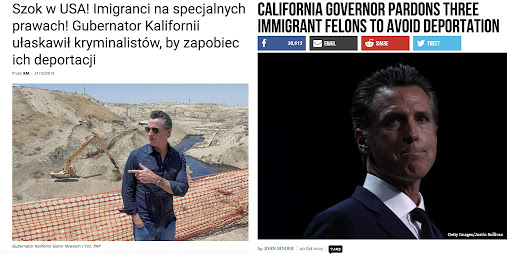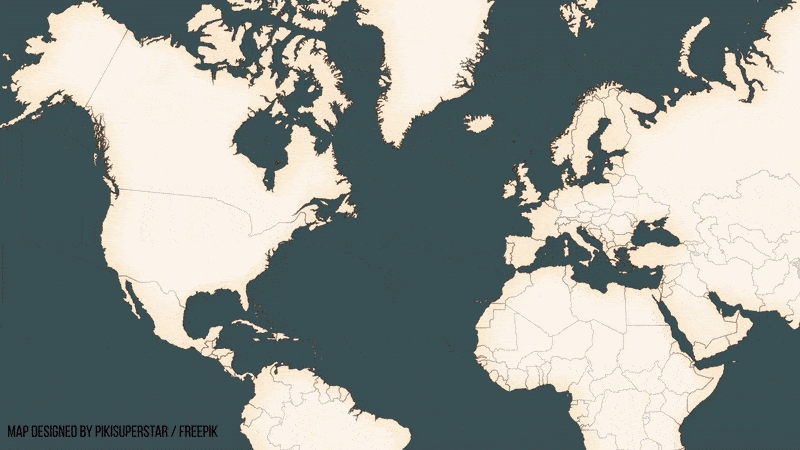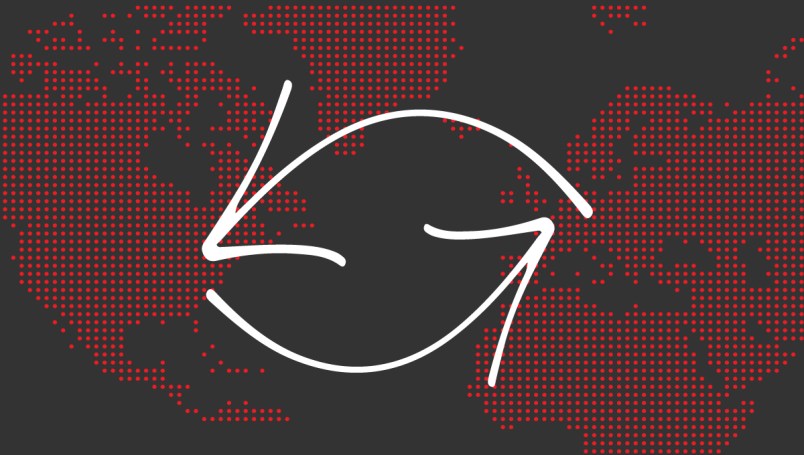This article is the result of a collaboration between TPM members and journalism graduate students at NYU. Over the past several months, NYU students from 10 different countries solicited the help of the community in TPM’s member forum, The Hive, to identify stories that could be of interest to TPM readers, but exist outside the range of TPM’s typical coverage areas. During the course of reporting, the students shared their progress with members for feedback and input. The project was intended to be fun, collaborative, and bring a new and valuable perspective to TPM’s community. Members can read more about the project here and we would love to hear your feedback.
You’ve probably never heard of the Slovenian right-wing TV network and website Nova24TV, but some of its defining features may sound familiar.
Launched in 2015, Nova24TV is closely tied to the nationalist Slovenian Democratic Party and its leader, the former Prime Minister Janez Janša, whose 2018 campaign bid was built on a promise to “drain the swamp” along with anti-immigration sentiment. In 2017, the network aired an interview with Bernard Brščič, a Holocaust denier who called the Holocaust “a perfidious Jewish design to restrain the German mind.” It also regularly runs hit pieces against the Slovenian Democratic Party’s political enemies, with headlines like: What’s going on with Violeta Tomić? She doesn’t powder her eye-bags anymore.” (Violeta Tomić is a left-wing member of the Slovenian parliament.)
If Nova24TV sounds like the Slovenian version of a number of American far-right sites, it’s probably not surprising that it often references sites like Breitbart, Infowars, and, from time to time, the Daily Caller. But Nova24TV isn’t just a European knockoff of far-right American media outlets, it also provides a useful window into how far-right disinformation is shared and distributed throughout Europe.
For the past two months, as part of a graduate journalism course at NYU, we have been researching the spread of far-right information, particularly in the EU. And while a couple of months is nowhere near enough time to get a comprehensive picture of this very complex issue, it is enough time to start to see patterns emerge. Some of what we observed might be more oddity than grand organized scheme.
For instance, we found it notable that far-right french activist Damien Rieu has copied for his own YouTube videos the look and feel of popular far-right conspiracy theorist and Infowars editor Paul Joseph Watson’s YouTube show, right down to the blazer and blue button-up shirt in front of a world map. And while Rieu’s mimicry doesn’t appear to be choreographed (Watson doesn’t even respond to Rieu’s @s on Twitter), it is indicative of a pattern of lesser-known far-right sites copying, sometimes verbatim, the headlines, content, and style of more popular far-right sites — often ones that are written or produced in English.
 Left: Paul Joseph Watson; Right: Damien Rieu
Left: Paul Joseph Watson; Right: Damien Rieu
In the course of our research we spoke to fact-checking organizations in nine different European countries to get their perspective on how far-right disinformation is spread — and we noticed a few recurring trends.
“Global far-right nationalist players, including media outlets and political leaders, likely stay closer, support and help each other more than liberals do around the world,” Baybars Orsek, the director of the International Fact-Checking Network, a global fact-checking coalition housed under the Poynter Institute, told us. “They are more coordinated, for sure.”
The “United States sits at the center” of the cycle of disinformation between America and Europe, Orsek said, adding that America “has the most influence among other far-right parties and outlets.”
Others agreed. “With shared values, ideology and also common political goals, I do see some sort of cooperation between American far-right media and Polish outlets,” said Pawel Terpilowski, the managing editor of Poland’s main fact-checking outlet Demagog.
 Left: Polish far-right weekly Najwyższy Czas!; Right: Breitbart
Left: Polish far-right weekly Najwyższy Czas!; Right: Breitbart
To illustrate his point, Terpiłowski cited the Polish far-right weekly Najwyższy Czas!, which had republished a translated version of an anti-immigrant Breitbart article.
In the Netherlands, fact-checker and media researcher J. P. Burger of Leiden University provided another example of American far-right influence: a Breitbart article headlined: “EU Democracy: Prez Juncker Reveals He Blocks Eurosceptics from Commission Jobs, Regardless of Elections.” The article had taken a few statements out of context and seemed to imply that former President of the European Commission Jean-Claude Juncker would exclude EU critics from the highest government posts, even if their parties won in the election. Though misleading, it was subsequently picked up by Flemish, Dutch, Germen, Swedish and Italian publications.
We saw this time and again. A story would originate in a far-right outlet in some European country, get picked up by Breitbart or another English-speaking far-right publication with a few details added or taken out of context, then the new, now false story would be picked up and spread around Europe by far-right European publications. This evidence of the influence American far-right sites like Breitbart have in Europe was illuminating, but to get a better sense of how and why disinformation was spreading, several of the experts we spoke with suggested we talk to fact-checkers in Sweden.
Hugo Ewald — fact editor at Dagens Nyheter, Sweden’s most widely distributed newspaper — explained that his country is being used by far-right media to issue a warning about the ills of liberal values and non-white immigration. “Culturally, Sweden portrays an ideal whiteness that Americans always desired to be,” Ewald said. “Far-right media in America looks for a story which originated in a ‘symbol’ country like Sweden to use [for] their own propaganda.” They pick the story, rewrite it in a way “that they can use in their own favor and start spreading it,” he said.
The fact that falsehoods, like Sweden banning Christmas lights for religious reasons or that it is the rape capital of Europe, are so often promoted by far-right sites and then become international talking points lends credence to Ewald’s claim.
As to the mechanics of how a local Swedish story that would otherwise fly under the radar gets picked up by far-right media and blown out of proportion, Asa Larsson, former editor of Viralgranskaren, a Swedish fact checking initiative, broke it down like this: “Something happens, [a] local paper or radio channel reports [on it]. It’s [then] picked up by right wing media, usually with a twist or… leaving some parts out. People who then try to read it with Google translate, and a limited understanding of Swedish conditions on the ground, may not see the twisting of the tale.”
Which brings us back to Nova24TV.
On October 30, 2018, Nova24TV published a piece about migrants in the European Union having Mastercard debit cards with the United Nations High Commissioner for Refugees (UNHCR) logo on them. It’s true that Mastercard and the UNHCR had partnered in order to give refugees prepaid debit cards, typically limited for use in only one country. However, Nova24TV added in its report that an unnamed Croatian police officer at the border had said that migrants with these cards were also carrying expensive cell phones, “cold weapons” — like knives and machetes — and were well-dressed. There were no identified sources in the story.
Italy’s political fact-checking site Pagella Politica, who directed us to this story, tracked what happened next.
The following day, Infowars Europe, the European vertical of the website helmed by American conspiracy theorist Alex Jones, jumped on the story, translating what appeared in Slovenian as “cold weapons” as “weapons.” Infowars also found a way to add its favorite anti-semitic dog-whistle, George Soros, to the story.
Although unrelated to Mastercard’s partnership with the UNHCR, Infowars included several paragraphs in its article detailing a Mastercard press release from 2017 “publicizing the launch of a partnership program with George Soros called ‘Humanity Ventures,’ which aimed to ‘catalyze and accelerate economic and social development for vulnerable communities around the world, especially refugees and migrants.’”
On November 2, 2018, the story was picked up by the English language, Netherlands-based website Voice of Europe, now with George Soros worked into the headline: “UN, EU and Soros provide migrants with prepaid debit cards to fund their trip to and through Europe.” Infowars then republished the new, laundered article on its main site with a Voice of Europe byline.
This latest version, which painted Soros as the money behind the UNHCR Mastercard partnership quickly spread in Europe, appearing on far-right media sites in French-speaking Switzerland, The Netherlands and Italy.
 Creative Commons / Designed by pikisuperstar / Freepik
Creative Commons / Designed by pikisuperstar / Freepik
The story ticked many of the boxes when it comes to far-right disinformation: progressive policies seemingly gone awry, non-white immigration, and George Soros for good measure. The fact that an American outlet picked up the story and translated it into English meant it could spread faster in Europe — English is the continent’s lingua franca and spoken by half the EU population.
“At one point, to spread, it needs to be in English,” explained Jacques Pezet, a fact-checker for Libération, a daily French newspaper. “When [the piece of disinformation] comes from a specific country in Europe, neighboring countries where people speak the language will pick it up. But if it’s picked up quickly in English, everyone is going to be on it.”
The cycle of information between far-right news outlets in the U.S. and Europe “is an easy way for far-right media to craft and spread their message. And, it’s mutual,” said Lukas Graves, the author of “Deciding What’s True: The Rise of Political Fact-Checking in American Journalism” and an associate professor at the University of Wisconsin.
“Especially, when it comes to the immigrant crisis, far-right media start producing the propaganda process by looking out for some ‘gone wrong’, ‘bad, very bad’ cases throughout Europe to support their evidence,” Graves said.
And President Trump’s successful 2016 campaign inflamed this cycle. It served as a reminder to some far-right politicians in Europe of what can be accomplished when you have your own platform to share your views, said Polish fact-checker Pawel Terpilowski. He suggested that many of the far-right sites in Europe and the political parties aligned with them are essentially trying to recreate and replicate in their respective countries the information sphere that helped get Trump elected.
“Using content and information from Breitbart and other sources, it can help them push forward their political agenda and boost the popularity of their party,” explained Terpilowski.
To some, disinformation from America’s far right seems almost “packaged” to be transported across the Atlantic.
“U.S. imports designed by far-rights is a heavy, multi-dimensioned package,” Orsek, of the International Fact-Checking Network, says. “The catalogue consists [of] Trump tweets, Breitbart and Daily Wire articles and [much] more.”
In our two months of research, we’ve found several instances of this cycle of disinformation. False stories flow in both directions. It’s hard to say whether the distortions are intentional or stemming from misunderstanding and incompetence. What’s clear is that it will continue given the level of success it sees by way of online virality.
Two weeks after the Nova24TV article on the prepaid debit cards was published, Alexios Mantzarlis, the News and Information Credibility Lead for Google News Lab wrote in a Twitter thread that “one of the great ironies of ‘anti-globalist’ disinformation is how seamlessly it travels across different countries.”
It’s a feature, not a bug. Steve Bannon, in a 2014 talk published by BuzzFeed News, boasted about the international reach of his outlet Breitbart News (he was executive chair then). “Outside of Fox News and the Drudge Report, we’re the third-largest conservative news site and, quite frankly, we have a bigger global reach than even Fox”, he said. “And that’s why we’re expanding so much internationally. We believe — strongly — that there is a global tea party movement.”
After looking at almost 10 European countries, we can say with certainty that, five years after Bannon’s speech, the hunger for these kinds of stories remains, and American far-right media does play a role in how disinformation spreads in Europe. Though it’s hard to assess their impact, the patterns of disinformation are there.
CONTINUE THE CONVERSATION: Our reporting on this issue is far from complete. Have you seen examples of this cycle of disinformation – where a piece of disinformation either originates or is amplified by the American far-right media and then circles back to Europe? Let us know on our story thread in The Hive.


 Members-Only Article
Members-Only Article
